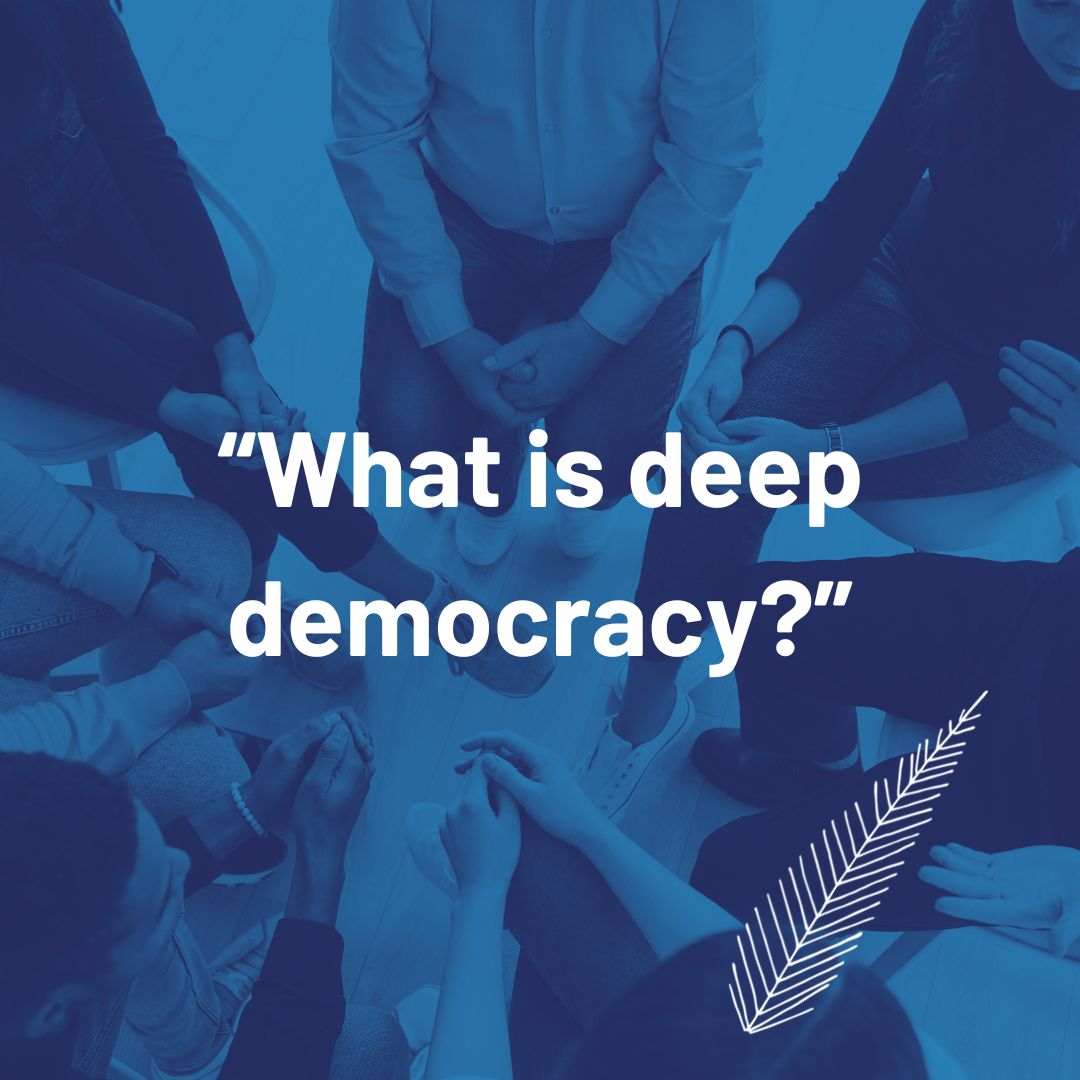“When it is reduced to an act of voting, democracy’s light is dim. And when the majority chooses somebody who is against sharing power, who is intent on wielding power over, that dim light sputters. GWI stands for deep democracy: it is the bonfire we need.”
I wrote this just after the November 2024 election. It’s been a long five months, and my mind keeps returning to these thoughts. I am witnessing what feels like a headlong rush to extinguish the light of democracy. It is the opposite of my engagement with practicing democracy daily at work. This contrast brings me greater clarity, along with a sense of strength emerging from what I know to be true from my lived experience.
We at GWI began our practice as a democratic organization in 2019, when we became a worker self-directed nonprofit. We began to learn and teach what Just Transition means, and the principles we all need to uphold in order to turn away from our extractive economy and orient toward a regenerative economy centered on care for each other and our shared home. In 2022, we affirmed our commitment to those principles while focusing our efforts on one of them: Democratizing Communities, Wealth, and Work. We began to use the term “deep democracy.”
What is deep democracy? We’ve been saying that:
- A regenerative economy is governed by practices of democracy deeper than periodic voting, practices of sharing power, leadership and decision-making.
- It is inextricably intertwined with both resilience and belonging. Resilience: in relation to developing collaborative communication skills to navigate inevitable tension and conflict in our working relationships. Belonging: as a way to aim toward the kind of beloved community Martin Luther King spoke of, and that must include acknowledging unequal societal power relations and taking action aligned with racial justice and social equity.
- It is also about Participation: having voice and influence in decisions affecting our lives and communities.
- In the clarity this moment offers, I am adding two things to this list: Trust and Empathy.
If participation allows us to gain voice and influence in decisions that affect us, what do we need in order to create the conditions for participation?
At GWI, we emphasize the importance of trust in building a workplace culture where sharing leadership and power is the norm. I’ve noticed that spaces of mutual influence at work are infused with trust. That trust shows up in our relationships, shared commitments, practices, agreements, etc. Our intention is to show up to conversations and decisions with willingness to both influence and to be influenced by the people and the process. This open willingness can be vulnerable and clearly relies on trust. It is a prerequisite to sharing power.
I’ve been having a recurring thought the past few months, as I witness our national politics on the one hand, and the way our team operates on the other: that democracy relies on empathy. Is democracy even possible without empathy?
For the past five years, we’ve been partnering with Nicole Bauman to offer a workshop series entitled Navigating Conflict: Building Resilience for Your Working Relationships. A major theme of the workshop, explored over the course of eight weeks, is related to understanding and practicing empathy. Empathy may sound like a soft word, but in reality, it is muscular (to borrow a word from Krista Tippett, host of On Being). To emphasize the importance of empathy is to align with a paradigm of possibility for collective well-being, as we abandon extraction and domination in favor of care and partnership. Partnership, it seems to me, is foundational to deep democracy, and partnership requires empathy.
So when strong statements about empathy came across my social media feed recently, they caught my attention. One came from Elon Musk who proclaimed on Joe Rogan’s podcast that empathy is the “fundamental weakness of Western civilization” pushing us toward “civilizational suicide.” The other quoted Gustave Mark Gilbert reflecting on his role as chief psychologist who interviewed Nazis on trial at Nuremberg: “I told you once that I was searching for the nature of evil. I think I’ve come close to defining it: a lack of empathy. It’s the one characteristic that connects all the defendants. A genuine incapacity to feel with their fellow man. Evil, I think, is the absence of empathy.”
Here’s how we at GWI understand and teach empathy. First of all, it is more of a practice than a feeling. It is a practice of attentive, receptive presence that seeks to understand. It is a practice of listening – not to believe or disbelieve, agree or disagree, but to just listen – and letting others know you have heard their perspective and their experience. It is a practice that builds the kind of trust and openness that allows the full circle of deep democracy to turn, which then allows that back and forth of sharing power, both gaining the power to influence and being willing to be influenced by others.
We are committed to upholding and practicing deep democracy in real, imperfect and sometimes messy ways. Our current extractive systems are broken and headed for collapse. We believe it is essential to be engaged in practicing the alternatives we’d like to become mainstream. In an era of increasing darkness, let’s find places where we can build fires and ways to add more sticks to them every day, so bonfires of deep democracy can burn bright and bring warmth to all who gather around them.


